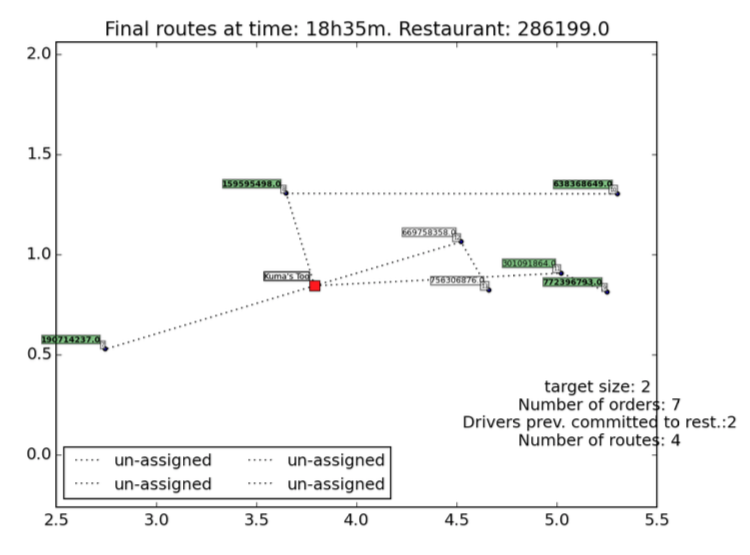For the past few years, I have collaborated with my faculty colleague Martin Savelsbergh and Ph.D. students on work with Grubhub, a leading online and mobile food ordering company. One service that Grubhub provides is food delivery, and they use a fleet of delivery people (couriers) that pickup orders from restaurants and deliver them to hungry consumers. This fleet is comprised of individual contractors. Some couriers work preassigned shifts with minimum work (earnings) guarantees, while other ad hoc couriers sign on like Lyft or Uber drivers when they have time to make food deliveries for Grubhub.

Two ISyE doctoral students have worked with us on these problems, first Damian Reyes and now Ramon Auad. Damian focused on the basics of driver management in this scenario, which is complicated primarily by very tight service guarantees and only loosely-controlled drivers. Ramon is now focusing more on demand management, in the attempt to shape demand when necessary to services that can be performed effectively by the available driver pool. An initial talk focused on Damian’s research was presented at the 1st TSL Conference in Chicago in summer 2017.
One particularly exciting aspect of this research is that our partner, Grubhub, has agreed to let us build public domain representative instances of the fundamental online driver management problems. These instances are now hosted and available for download at Grubhub’s public github site. The instances are fully documented, and an evaluation code is provided. The evaluation code accepts a solution that you might generate for an instance, checks it for feasibility against our primary constraints, and then calculates performance metrics of your solution. If you are interested in dynamic logistics problems, especially those that require the routing and scheduling of resources, we encourage you to check out the instances!